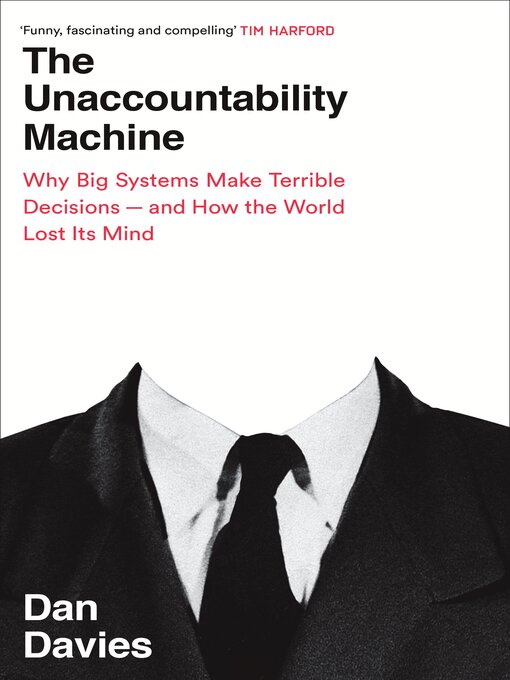
 The unaccountability machine : why big systems make terrible decisions - and how the world lost its mind
by
When we avoid taking a decision, what happens to it? In The Unaccountability Machine, Dan Davies examines why markets, institutions and even governments systematically generate outcomes that everyone involved claims not to want. He casts new light on the writing of Stafford Beer, a legendary economist who argued in the 1950s that we should regard organisations as artificial intelligences, capable of taking decisions that are distinct from the intentions of their members.
Management cybernetics was Beer's science of applying self-regulation in organisational settings, but it was largely ignored - with the result being the political and economic crises that that we see today. With his signature blend of cynicism and journalistic rigour, Davies looks at what's gone wrong, and what might have been, had the world listened to Stafford Beer when it had the chance.
The unaccountability machine : why big systems make terrible decisions - and how the world lost its mind
by
When we avoid taking a decision, what happens to it? In The Unaccountability Machine, Dan Davies examines why markets, institutions and even governments systematically generate outcomes that everyone involved claims not to want. He casts new light on the writing of Stafford Beer, a legendary economist who argued in the 1950s that we should regard organisations as artificial intelligences, capable of taking decisions that are distinct from the intentions of their members.
Management cybernetics was Beer's science of applying self-regulation in organisational settings, but it was largely ignored - with the result being the political and economic crises that that we see today. With his signature blend of cynicism and journalistic rigour, Davies looks at what's gone wrong, and what might have been, had the world listened to Stafford Beer when it had the chance.
NB: The last e-book is not available to alumni.